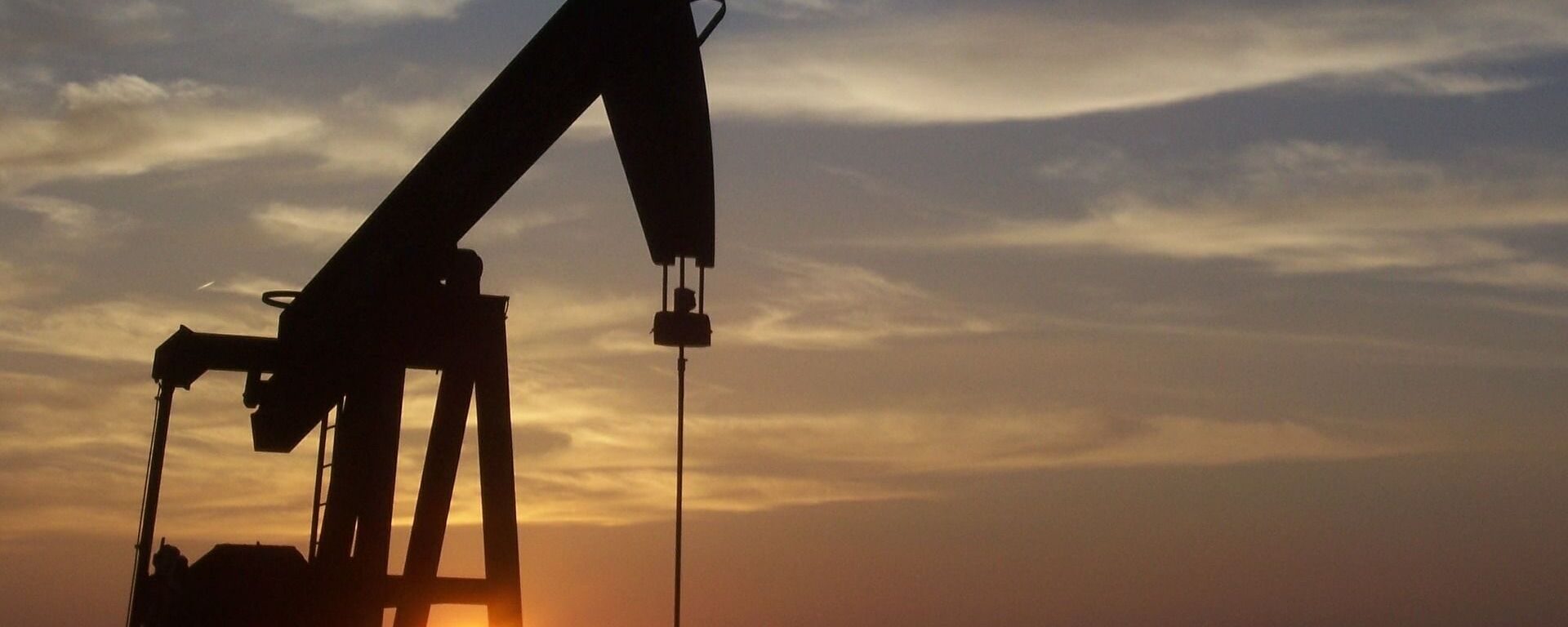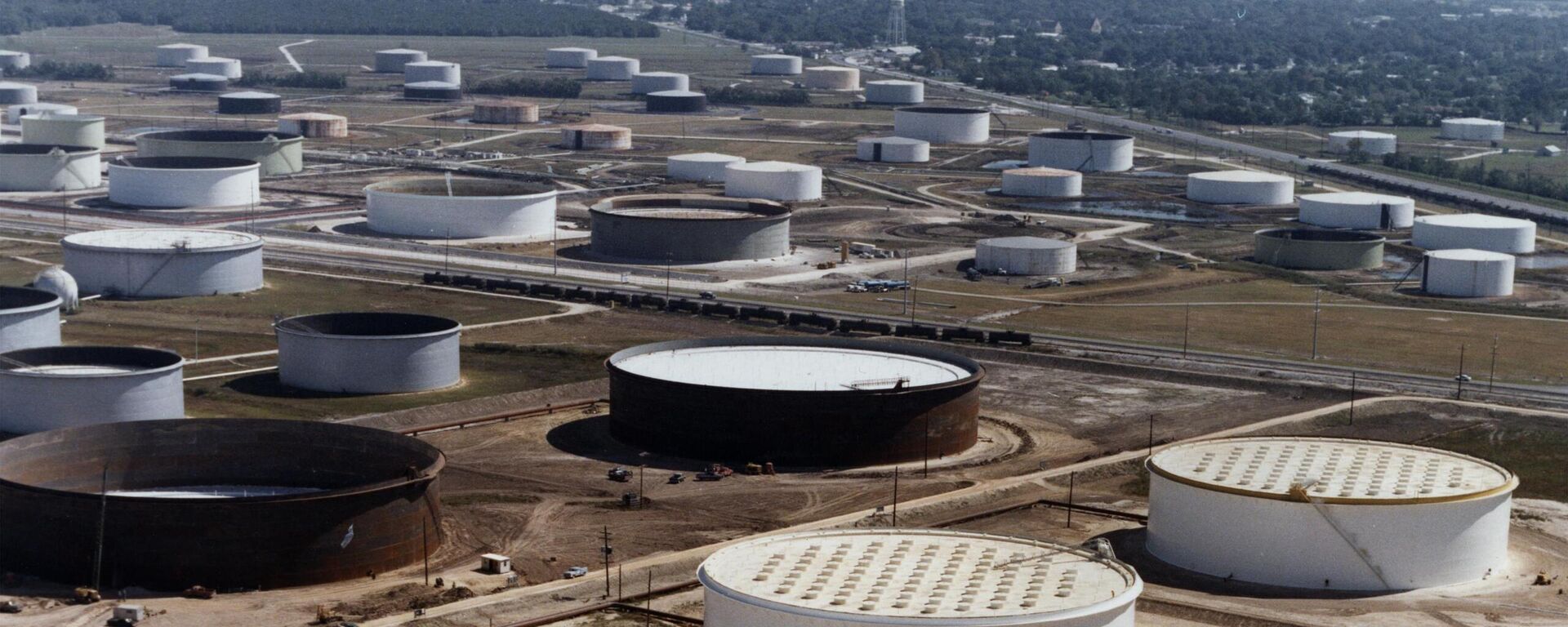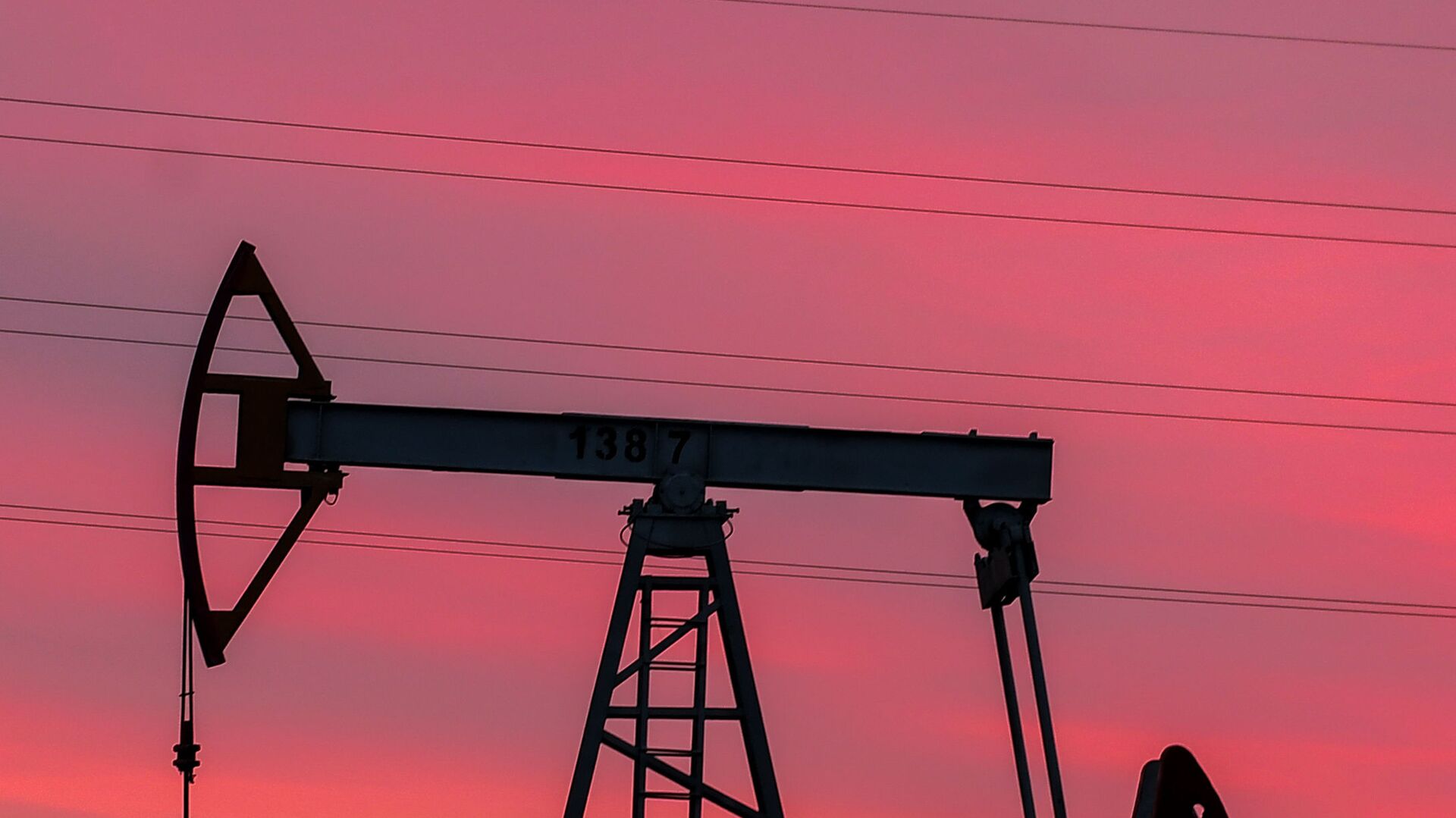https://sputnikglobe.com/20221009/opecs-responsible-position-balances-lawlessness-caused-by-us-in-global-energy-market-kremlin-1101651658.html
Kremlin: OPEC+ Decision to Cut Oil Production is a 'Victory of Common Sense'
Kremlin: OPEC+ Decision to Cut Oil Production is a 'Victory of Common Sense'
Sputnik International
Last week, the group of influential oil-producing countries agreed to cut oil production by two million barrels per day (bpd), undermining the Biden... 09.10.2022, Sputnik International
2022-10-09T11:11+0000
2022-10-09T11:11+0000
2022-11-03T19:05+0000
opec
economy
russia
cut
production
dmitry peskov
https://cdn1.img.sputnikglobe.com/img/107875/46/1078754692_0:92:2175:1315_1920x0_80_0_0_d27fc51168ff13f4cab95a21c9abc84c.jpg
The "responsible position" taken by the Organization of the Petroleum Exporting Countries and its major non-member partners to cut oil output serves to balance out the "chaos" on global energy markets that was unleashed by the United States, Kremlin spokesman Dmitry Peskov has said."Of course, the fact that [the Russian] president was able to establish mutually respectful relations [with Saudi Arabia and the UAE] which are based on mutual benefit, based on mutual trust - this of course helps in discussing the most critical details. I am not inclined to say that this is some kind of victory on our part. This is a victory of common sense," Peskov said in an interview with Russian television on Sunday.OPEC+ agreed to cut crude production by two million bpd on Wednesday after a ministerial meeting in Vienna, with the cuts expected to enter into force in November.The move was made amid growing uncertainty in global oil markets, caused in part by Western efforts to limit the purchase and sale of Russian energy and to introduce a "price cap" on Russian crude oil. Russian officials have warned repeatedly that any attempts to "cap" the price of Russian oil may lead to a halt in exports. Russia accounts for approximately 10 percent of the global crude oil market."The US has begun to literally lose their self-control...Their main task is to push through the decisions [targeting Russian energy] partially adopted by the European Union in its latest package of sanctions, even at the cost of destabilizing the global energy market," Peskov said.The White House expressed "disappointment" over the OPEC+ output cut, pledging to pour an additional 10 million barrels from the US Strategic Petroleum Reserve onto the market, while some lawmakers threatened to pull US weapons systems, troops, and contractors out of Saudi Arabia and the UAE in retaliation.Secretary of State Antony Blinken said Washington would consider "a number of response options" against Riyadh over the cuts, while Biden Press Secretary Karine Jean-Pierre accused OPEC+ of "aligning with Russia."Democratic Senator Chris Murphy encouraged Washington to begin a "wholesale reevaluation" of the US' alliance with Riyadh, while Democratic Congressman Tom Malinowski accused the Gulf states of seeking to tank the US economy and to "help" Washington's enemies.Saudi and OPEC+ officials brushed off Washington's concerns, assuring that the agreed cuts were designed to stabilize energy markets.Amid reports that the United States might lift its sanctions on Venezuelan oil to address potential shortages, senior Republicans including former President Donald Trump have urged the federal government to encourage increased domestic crude production instead of going around the world "begging everybody for oil."Commenting on the Biden administration's plans to further eat into the SPR, Peskov suggested that "such a game will not lead to anything good" for Washington in the long term.OPEC's 13 member states include Algeria, Angola, the Republic of the Congo, Equatorial Guinea, Gabon, Iran, Iraq, Kuwait, Libya, Nigeria, Saudi Arabia, the UAE, and Venezuela, with the Saudis serving is the bloc's de facto leader. OPEC+ includes major non-member oil producers which agree on supply agreements and other arrangements aimed at keeping global oil prices and supplies stable. Its members include Azerbaijan, Bahrain, Brunei, Kazakhstan, Malaysia, Mexico, Oman, the Philippines, Russia, Sudan, and South Sudan.
https://sputnikglobe.com/20221006/bidens-white-house-fuming-over-opec-production-cut-move-1101560286.html
https://sputnikglobe.com/20221007/us-strategic-oil-reserve-hits-lowest-point-in-decades-1101619782.html
russia
Sputnik International
feedback@sputniknews.com
+74956456601
MIA „Rossiya Segodnya“
2022
News
en_EN
Sputnik International
feedback@sputniknews.com
+74956456601
MIA „Rossiya Segodnya“
Sputnik International
feedback@sputniknews.com
+74956456601
MIA „Rossiya Segodnya“
opec, russia, cut, production, dmitry peskov
opec, russia, cut, production, dmitry peskov
Kremlin: OPEC+ Decision to Cut Oil Production is a 'Victory of Common Sense'
11:11 GMT 09.10.2022 (Updated: 19:05 GMT 03.11.2022) Last week, the group of influential oil-producing countries agreed to cut oil production by two million barrels per day (bpd), undermining the Biden administration's diplomacy in Gulf nations aimed at ramping up output amid a global energy crisis sparked by the anti-Russian policies of the US and its allies.
The "responsible position" taken by the Organization of the Petroleum Exporting Countries and its major non-member partners to cut oil output serves to balance out the "chaos" on global energy markets that was unleashed by the United States, Kremlin spokesman Dmitry Peskov has said.
"Of course, the fact that [the Russian] president was able to establish mutually respectful relations [with Saudi Arabia and the UAE] which are based on mutual benefit, based on mutual trust - this of course helps in discussing the most critical details. I am not inclined to say that this is some kind of victory on our part. This is a victory of common sense," Peskov said in an interview with Russian television on Sunday.
The presidential spokesman said it was a good thing that such "balanced, thoughtful and planned out work by countries which take a responsible position within OPEC resists US actions" is possible, since "this at least balances out the chaos being caused by the Americans."
OPEC+
agreed to cut crude production by two million bpd on Wednesday after a ministerial meeting in Vienna, with the cuts expected to enter into force in November.
The move was made amid growing uncertainty in global oil markets, caused in part by Western efforts to limit the purchase and sale of Russian energy and to introduce a "price cap" on Russian crude oil. Russian officials have warned repeatedly that any attempts to "cap" the price of Russian oil may lead to a halt in exports. Russia accounts for approximately 10 percent of the global crude oil market.
"The US has begun to literally lose their self-control...Their main task is to push through the decisions [targeting Russian energy] partially adopted by the European Union in its latest package of sanctions, even at the cost of destabilizing the global energy market," Peskov said.
The White House expressed
"disappointment" over the OPEC+ output cut,
pledging to pour an additional 10 million barrels from the US Strategic Petroleum Reserve onto the market, while some lawmakers
threatened to pull US weapons systems, troops, and contractors out of Saudi Arabia and the UAE in retaliation.
Secretary of State Antony Blinken said Washington would consider
"a number of response options" against Riyadh over the cuts, while Biden Press Secretary Karine Jean-Pierre accused OPEC+ of
"aligning with Russia."Democratic Senator Chris Murphy encouraged Washington to begin a "wholesale reevaluation" of the US' alliance with Riyadh, while Democratic Congressman Tom Malinowski accused the Gulf states of seeking to tank the US economy and to "help" Washington's enemies.

6 October 2022, 08:03 GMT
Saudi and OPEC+ officials brushed off Washington's concerns, assuring that the agreed cuts were designed to stabilize energy markets.
Amid
reports that the United States might lift its sanctions on Venezuelan oil to address potential shortages, senior Republicans including former President Donald Trump have
urged the federal government to encourage increased domestic crude production instead of going around the world "begging everybody for oil."
Commenting on the Biden administration's plans to further eat into the SPR, Peskov suggested that "such a game will not lead to anything good" for Washington in the long term.

7 October 2022, 18:45 GMT
OPEC's 13 member states include Algeria, Angola, the Republic of the Congo, Equatorial Guinea, Gabon, Iran, Iraq, Kuwait, Libya, Nigeria, Saudi Arabia, the UAE, and Venezuela, with the Saudis serving is the bloc's de facto leader. OPEC+ includes major non-member oil producers which agree on supply agreements and other arrangements aimed at keeping global oil prices and supplies stable. Its members include Azerbaijan, Bahrain, Brunei, Kazakhstan, Malaysia, Mexico, Oman, the Philippines, Russia, Sudan, and South Sudan.




